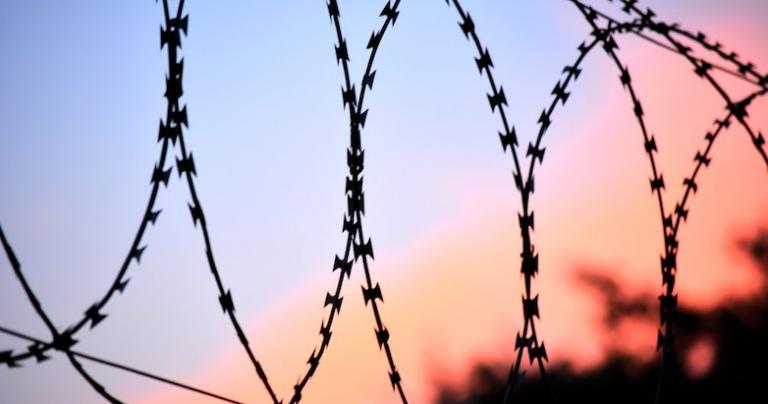by Kate Harveston
It cannot be denied that Christianity still dictates a lot of what goes on in America. Of course, knowing this isn’t the whole truth — not when evangelicals seem to have divided themselves neatly into two camps:
- Fundamentalist Conservative Christians who somehow believe Christianity and political conservatism are compatible.
- Christian-Humanists who obey the Bible as they interpret it, by which we mean they’ve “evolved” on certain issues like marriage equality, birth control and women being eligible for priesthood.
Both groups are a seriously commanding presence in public and civic life in the U.S. As a result, it’s hard to believe there’s still a critical mass of Christians who believe their religion is “under unprecedented attack.” Indeed — recent polls of Christian Americans indicate a huge 80 percent majority believe Christianity is the “most persecuted” religion in the United States.
In any case, Christianity’s de-facto hegemony in North America and Europe for most of the last two thousand years has caused many to turn a blind eye to actual persecution when it appears.
In many countries, some Islamic and some not, atheists are regularly executed in public places for the crime of practicing skepticism. This is real persecution of a kind vanishingly few living American citizens, Christians or otherwise, can fully imagine.
Atheism has emerged in the spotlight at a time when the world faces an unprecedented migrant crisis on multiple fronts. People aren’t just fleeing war and famine — they’re also fleeing the very real threat of execution based solely on their beliefs.
Asylum for Open Minds
Recent years have seen a rising number of atheists fleeing Islamic countries in fear of their lives, but they often find themselves without moral or legal support. Asylum cases are usually decided on a case-by-case basis, meaning when these fleeing atheists arrive in their would-be foster countries and tell their stories about death threats, mutilations, public executions and other grotesqueries back home, they’re often not taken seriously.
It’s not hard to understand why. When one is born into a place of religious and social superiority, it’s difficult to imagine others’ hardships with real clarity. Consequently, these asylum-seekers are often turned away.
The problem, if you can believe it, is partially a bureaucratic one.
To better understand what we mean, and to put a face to this humanitarian crisis, consider the story of Mina Ahadi, who grew up in Iran and eventually went on to lead the Central Council of Former Muslims in Germany. She and her husband were both sentenced to death by the Iranian government in 1980 for protesting Islamic rule there. Her husband was executed. Ahadi escaped to Germany and has been fighting to expand asylum laws for immigrants of all kinds ever since.
What Keeps Atheists from Successfully Pleading for Asylum?
Ahadi says the problem is twofold.
First, it’s the filter bubble and perception problem we mentioned above. Call it an institutional-level lack of empathy from the Western World, which has spent hundreds of years with its principle religion largely unchallenged within its borders. A recent Pew survey determined 80 percent of American adults believe in God. Of these, 56 percent believe in the God of the Christian Bible, specifically.
Just 19 percent claimed no belief in God. This cohort was split down the middle between believing in non-specific “higher spiritual forces” and not believing in anything spiritual whatever.
Being vastly outnumbered in this way is not a death sentence in America — but it absolutely can be elsewhere in the world.
Mina Ahadi reveals the second of the twofold barriers to atheist asylum-seekers, and it’s that pesky bureaucratic bit we mentioned earlier:
“We’ve been dealing with refugees from Islamic countries for a long time and for ten years now, we’ve been advocating for a change in law that would allow atheism as guaranteed grounds for asylum.”
In other words, Germany already has laws on their books that lay out “acceptable” criteria for approving somebody’s plea for asylum. There has never been, and still is not, a criterion for accepting asylum cases on the grounds of atheism. When Ahadi’s Central Council takes up cases like these on behalf of asylum-seekers who have no other allies, she says they’re successful only about a third of the time.
Sometimes, they’re told religion — and, apparently, the lack of same — is too much of a “personal issue” for them to wade into the middle of it. That’s ironic, coming from any country that claims it values “religious freedom.”
See, freedom to practice religion cuts both ways — it’s also a freedom not to practice religion. But the powers-that-be in Germany, the United States and elsewhere in the Western World don’t necessarily see it that way. They can’t seem to wrap their minds around a sort of persecution they’ve never had to live through.
Ahadi says, “They just don’t understand the reality on the ground in these countries. People are under constant surveillance, regardless of how or where they choose to pray. People have lost their lives in such countries for only being suspected of abandoning Islam. Atheism often means a death sentence.”
There’s not a lot you and I can do about this except our small part to — gently, if we can — change the narrative as the public understands it. That means the next time your aunt sends you some hysterical chain email about Christian persecution in America, respond with love and try to help them understand that things are so much worse elsewhere — and that a real God of love leaves His door open and His porch light on for anybody who wants shelter from the storm.















